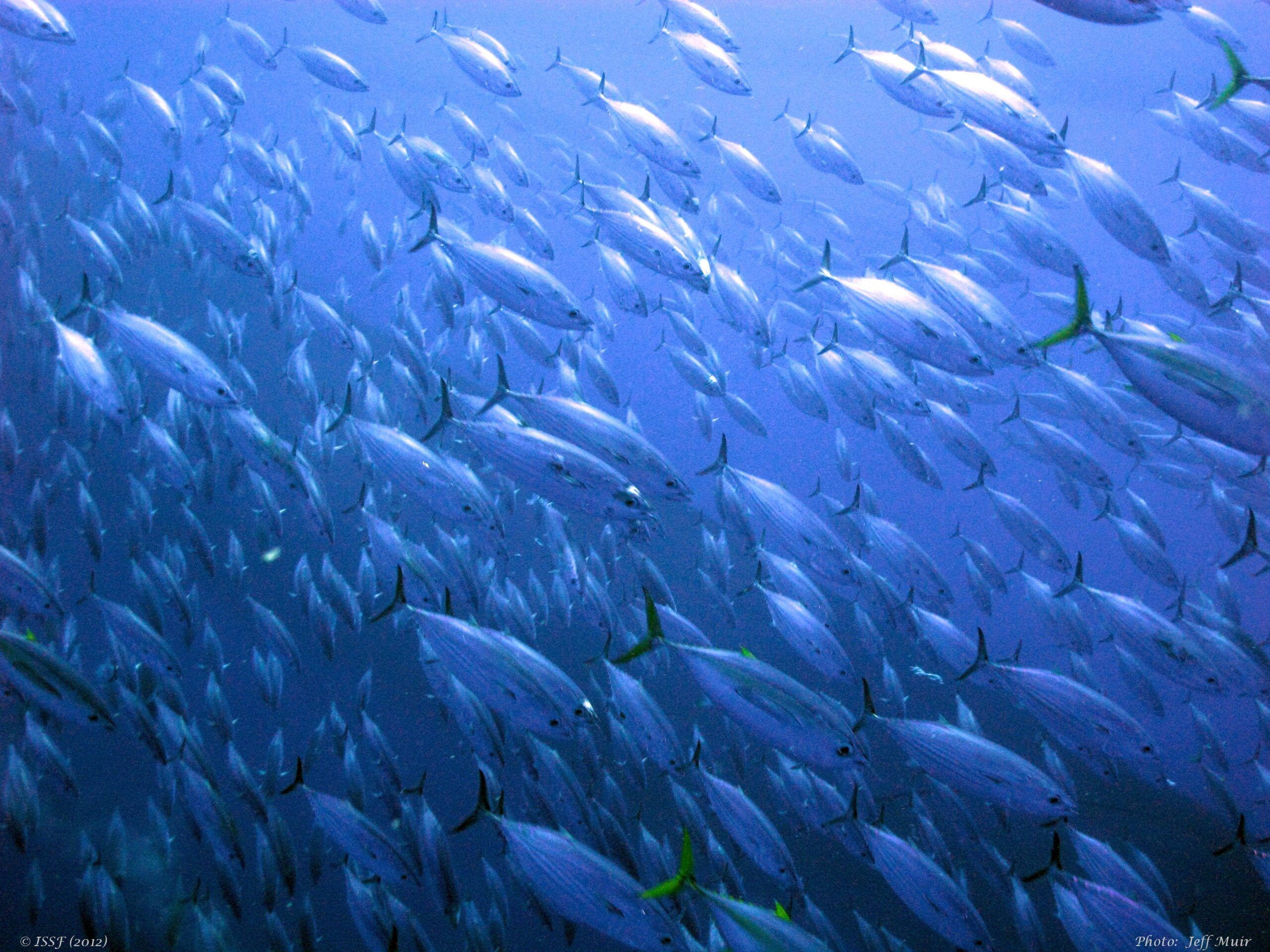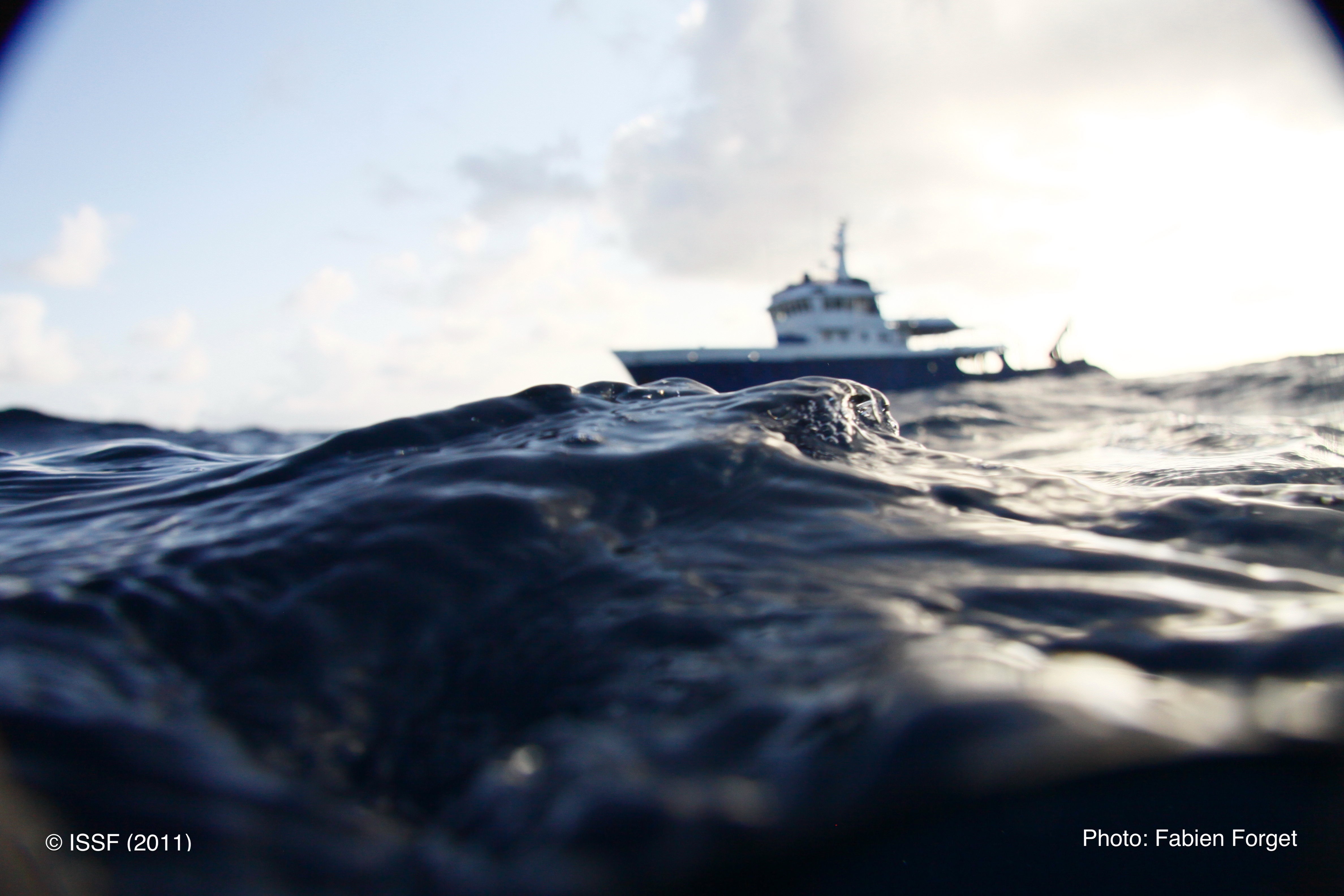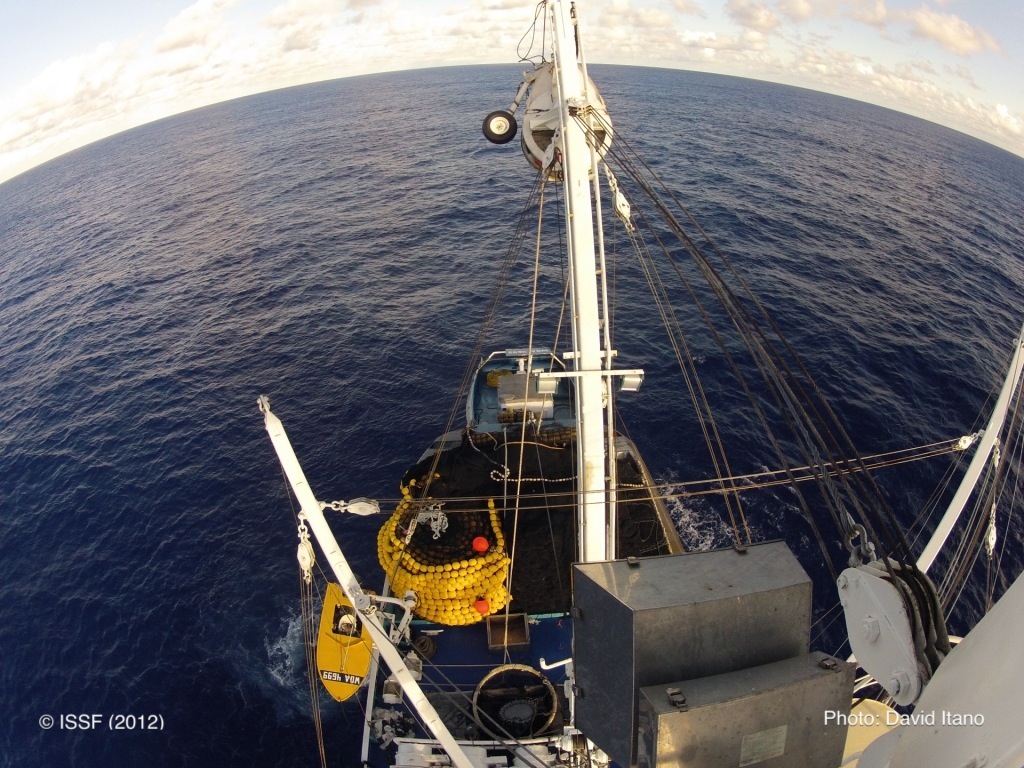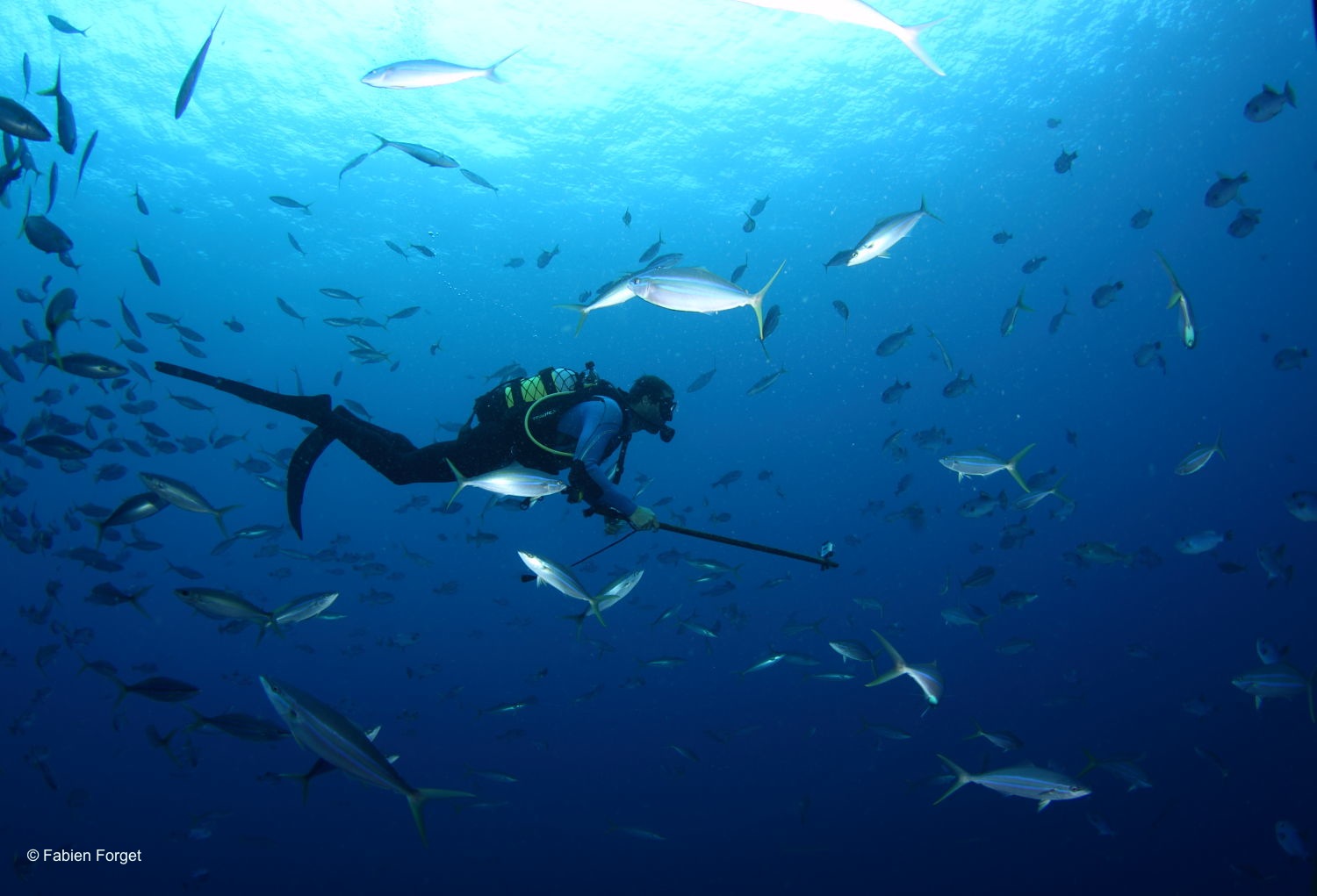
Eastern Pacific Ocean Tuna Fisheries: Wins for Transshipment, Harvest Strategies and Compliance Reforms, but Misses on Measures for Stronger FAD Management, Increased Observer Coverage, and Protections for Sharks
At the conclusion of the annual meeting of Inter-American Tropical Tuna Commission (IATTC), the International Seafood Sustainability Foundation (ISSF) is reflecting on the outcomes for Eastern Pacific Ocean (EPO) tuna fisheries. While we are disappointed that the Commission did not address our top ask on improved fish aggregating device (FAD) designs, we are pleased that managers made headway on important topics like at-sea transshipment measures, harvest strategies, and compliance reforms.
Here is a review of the results of the IATTC meeting against our organization’s priorities as outlined in our 2022 position statement.
At-sea Transshipment
At-sea transshipment presents risks for illegal, unreported, and unregulated (IUU) fishing and other illicit activities if not well-managed and transparent. That’s why ISSF and our partners urged IATTC to address deficiencies and loopholes in its transshipment measure to increase monitoring and to ensure more complete and timely data collection and sharing. Fortunately, at this year’s meeting the Commission answered this call by modernizing their measure, making it more consistent with best practices. These practices address items like IMO number requirements, electronic transmission of notifications and transshipment declarations, shortened reporting deadlines, and vessel monitoring systems (VMS) on carrier vessels, regardless of size.
Harvest Strategies for All Tunas
IATTC has been advancing species-specific harvest strategies, including harvest control rules, for many years. Harvest strategies provide pre-agreed rules for managing fisheries resources and are essential for quick RFMO action in response to stock status changes. ISSF congratulates the IATTC on its adoption of a harvest strategy for North Pacific Albacore. Action by the IATTC for this important resource paves the way for the adoption of harvest strategies for the other target tuna stocks in EPO fisheries.
Compliance Reforms
ISSF and our partners have long advocated for the IATTC to strengthen compliance assessment processes, and we are pleased that progress was made in this critical area this year. While the IATTC had previously adopted a detailed measure for its Committee for the Review of Implementation of Measures, the Commission was not implementing many of the measure’s provisions. Other reforms were also needed to strengthen and make the compliance process more transparent. We therefore welcome the adoption of improvements that include many of the best practices promoted by ISSF and partners: improved follow-up and reporting on identified infractions; greater detail in compliance reports; better presentation of data to facilitate reviews; development of improvement plans and capacity building; and mechanisms to identify patterns of infractions.
FAD Management
We once again urged the IATTC to address FAD management gaps this year. Our most urgent appeal was that the Commission prohibit the use of netting in FADs and transition fleets to the increased use of biodegradable materials. Thousands of FADs with netting panels drift in the eastern Pacific Ocean and some of them end up stranding or sinking far from their fishing grounds. Plastic netting increases the risk of entanglement, has the potential to damage vulnerable ecosystems such as coral reefs, and can persist at sea for hundreds of years. Yet, IATTC currently allows netting in FAD construction and has no agreed definition of biodegradable FADs. Disappointingly, there were no proposals to advance needed improvements in FAD designs at the IATTC meeting. Inaction in this area means in another year of the status quo that will not reduce the impact of FAD structures on the marine ecosystem in the Eastern Pacific Ocean.
Other Misses for EPO Tuna Fisheries
In addition to FADs, there are other important topics that IATTC did not address. ISSF is disappointed that the Commission did not adopt better protections for sharks and other bycatch species in EPO purse seine and longline fisheries, especially stronger measures for the prevention of shark finning. The Commission also failed to improve its observer coverage requirements — which fall short of the 100% coverage rate for small purse seine and longline tuna fisheries that ISSF and its partners have long promoted — even incrementally.
While a robust list of to-dos remains for the Commission, ISSF applauds the positive steps at last week’s IATTC meeting. We remain watchful and engaged to ensure that more progress can be made for the long-term protection of EPO tuna fisheries.


